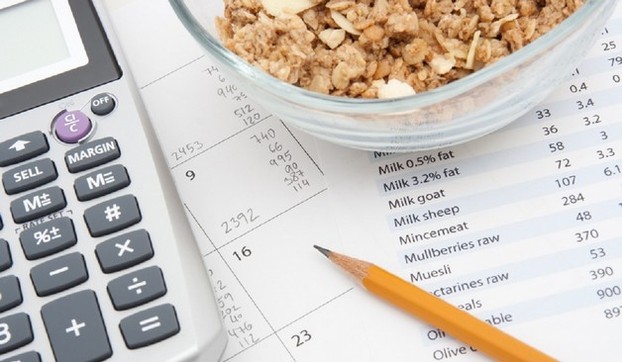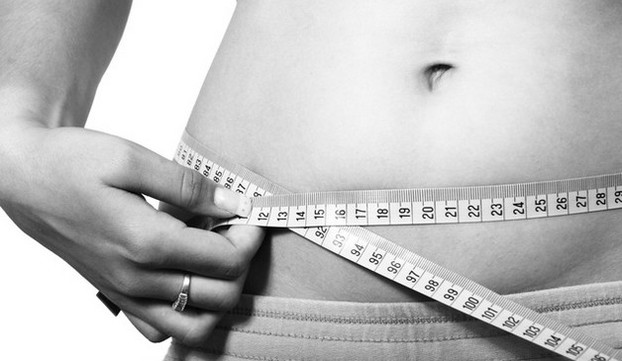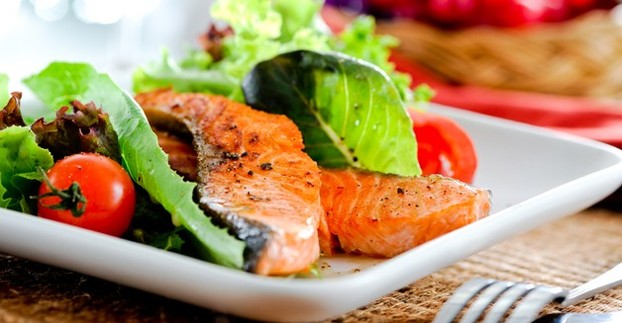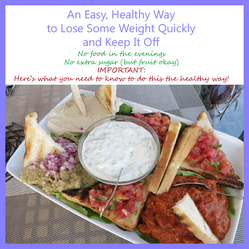An average diet varies between 1500 to 2000 calories per day; enough to ensure the proper functioning of the body. For the case of a healthy low calorie diet, it should also provide the nutrients (macronutrients, vitamins and minerals) in sufficient quantities to keep the body in full health and prevent future disease. Much more than a few calories, the low calorie diet not only takes into account the total calories, but appreciates the quality of dietary nutrients. The type of nutrients and hormones influence the metabolism. For example, taking a lot of sugar triggers the production of insulin and generates adipose tissue (fat). It is preferable to take complex carbohydrates.

An Overview of a Low Calorie Diet
by healthtalk
A low calorie is one that provides fewer calories needed to maintain body weight or in order to lose weight. Read about features, pros and cons of this diet.
How many calories should you eat?
 |
The recommended daily intake of energy depends on the sex, height, age and physical activity of the person. It shall be calculated according to different formulas like the Harris-Benedict equation or the Mifflin-St Jeor formula.
How many kilos can be lost with a low calorie diet?
 |
Weight loss is different in each case, since it depends on factors that are different for each individual. Experts consider as a proper weight loss 0.5 - 0.8 kg a week. This ensures a steady weight loss and weight maintenance in the long term, because it avoids the rebound or yo-yo effect, which is the sudden weight gain after performing strict and unbalanced diets.
Advantages and disadvantages of a low calorie diet
 |
Pros
- It is a healthy diet because, in addition to providing sufficient nutrients, helps lower body weight, which has a direct impact on health and quality of life of the person.
- No rebound or yo-yo effect, because the weight loss is not rapid the diet is accompanied by physical activity.
- Cures or relieves health conditions, we talk about those effects that improve with weight loss, such as sleep apnea, asthma, fibromyalgia, type 2 diabetes, general fatigue, arthritis...
- Improves self-esteem, because increased blood supply and the production of hormones that are generated by physical activity give a sense of well-being.
- Improves social relationships: with greater self-confidence, this diet improves relationships with others.
- Improved rest, because losing weight helps rest better while reducing the feeling of fatigue during the day.
Cons
- It may be monotonous if good menu planning is not maintained.
- The results are long term because, although the weight loss is constant, it is slower than with strict diets.
- It may require the support for a nutritional coach in many cases.
- Lack of motivation because of not having clear objectives.
What should this diet feature to lose weight healthily
 |
- It should be rich in fiber (oat bran, whole grains, beans, sweet peas, fruits and vegetables).
- It should include foods with complex carbohydrates such as oatmeal, brown rice, fruit and whole grain bread.
- It should be slightly high in protein (fish such as salmon, tuna, halibut and tilapia, chicken and turkey breast, top or round bottom steak, soy products like tofu, eggs, skim milk and nuts).
- It should be low fat, but with good fats like olive oil.
- It should be complemented by physical activity, as at least walk 1 hour a day.
You might also like
20 Super Easy Tricks for Eating LessTwenty tips on how to cheat hunger and lose weight for people who spend too m...
An Easy, Healthy Way to Lose Some Weight QuicklyMost diets are unhealthy. This weight loss regimen is healthy, with no yo-yo ...



 Why is Cooking with Coconut Oil Healthy?on 02/17/2017
Why is Cooking with Coconut Oil Healthy?on 02/17/2017
 3 Warning Signs that Women Must Take into Accounton 11/14/2015
3 Warning Signs that Women Must Take into Accounton 11/14/2015
 How Does the Health Care Reform Affect You?on 08/26/2015
How Does the Health Care Reform Affect You?on 08/26/2015
 Top 5 Foods Most Harmful For Your Heart Healthon 03/11/2015
Top 5 Foods Most Harmful For Your Heart Healthon 03/11/2015


Comments